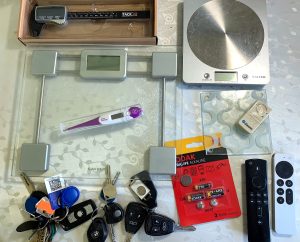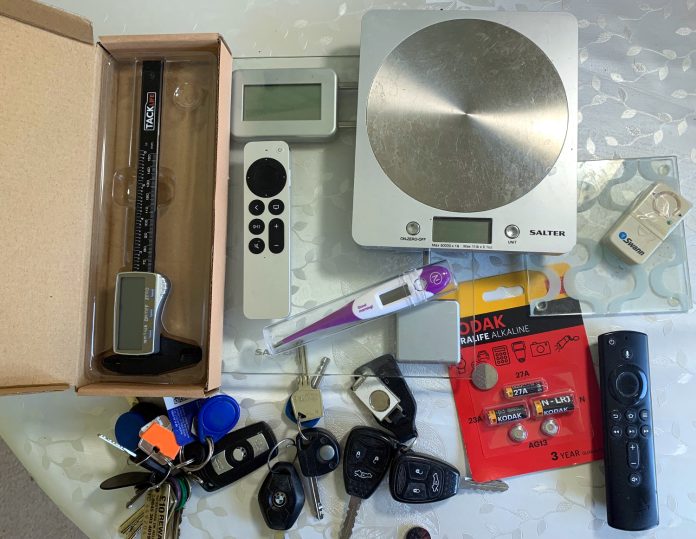Who knew that a hidden danger to any children in your home is button batteries?
This Child Safety Week (6-12th June) we are highlighting the dangers of children ingesting button batteries.
Button batteries, which are also known as coin batteries, are tiny or small flat circular batteries that are used to power many objects around the home. These include: watches, calculators, remote controls, electronic toys, key fobs and car keys, LED lights, torches, medical monitoring devices (such as blood glucose monitors) digital thermometers, weighing scales, door bells, mobile phones and devices and greetings cards that make sounds.
The circular shaped batteries are usually about one to two centimetres wide and are shiny and silver and the size of many traditional sweets.

If a button battery is swallowed or inserted into a nose or ear canal it can cause severe harm or be potentially life threatening. Although Accident and Emergency doctors can often locate, remove and treat affected patients successfully, sometimes the consequences of a child putting a button battery in their mouth can be fatal. More than two children are killed each year by putting a button battery into their mouths accidentally in England alone.
Nicky Dowd is a health visiting lead and the Chair of Coventry’s accident prevention group the Child Accident Prevention Trust and she explains that “Lithium batteries cause a chemical reaction when wet which releases a substance like caustic soda which can cause damage to tissue and organs.”
This is because an alkaline force field is created which can cause burning and long term or life-threatening effects. It can damage the oesophagus (foodpipe) or the trachea (windpipe) and in some cases blood vessels that connect to the heart might be burned as well.
Rachel Lapham Senior Project Manager and Programme Manager at University Hospitals of Leicester NHS Trust says that “Great Ormond Street Hospital see around one child per month who has ingested a button battery.” (1)
The trading standards laws governing children’s products ensure that toys should have battery compartment panels that are screwed in place to prevent children from accessing button batteries easily.
However, many products in general use designed for adults to use at home do not have any such protective panel requirement, so the small plastic panels can easily be removed or they can fall off, enabling a button battery to be easily picked up by a baby of young child.
Babies and toddlers explore the world by putting things in their mouth. We have numerous nerve endings in our mouths and this is a normal part of child development. Therefore, it is up to the adults, parents, carers, teachers and anyone supervising children to understand the dangers of button batteries. All adults supervising children can then look out for these tiny hazards around the home and minimise the dangers of any accidents happening.
One example to consider could be the coin batteries found in (usually) older friends or relatives (such as grandparents) hearing aids. These are quite small and can be dropped inadvertently.
The larger the battery ingested, the less likely it is to pass through the digestive system of a child in the normal way and the more likely it is to become stuck. If you suspect that a child has eaten a battery by mistake, immediately take them to a hospital with an Accident and Emergency department or dial 999. Do not give them anything to eat or drink advises The Child Accident Prevention Trust, as this could make symptoms worse.
The Child Accident Prevention Trust website provides lots of useful posters and factsheets that can be downloaded and shared for free. (2)
(1) Great Ormond Street Hospital for Children, ‘Button Batteries’ – using them safely’ 13 June 2022 (1) Great Ormond Street Hospital for Children, ‘Button Batteries’
(2) ‘Button Batteries’ Child Accident Prevention Trust ‘Accidents can be prevented’ 13 June ‘Button Batteries’ Child Accident Prevention Trust ‘Accidents can be prevented’

